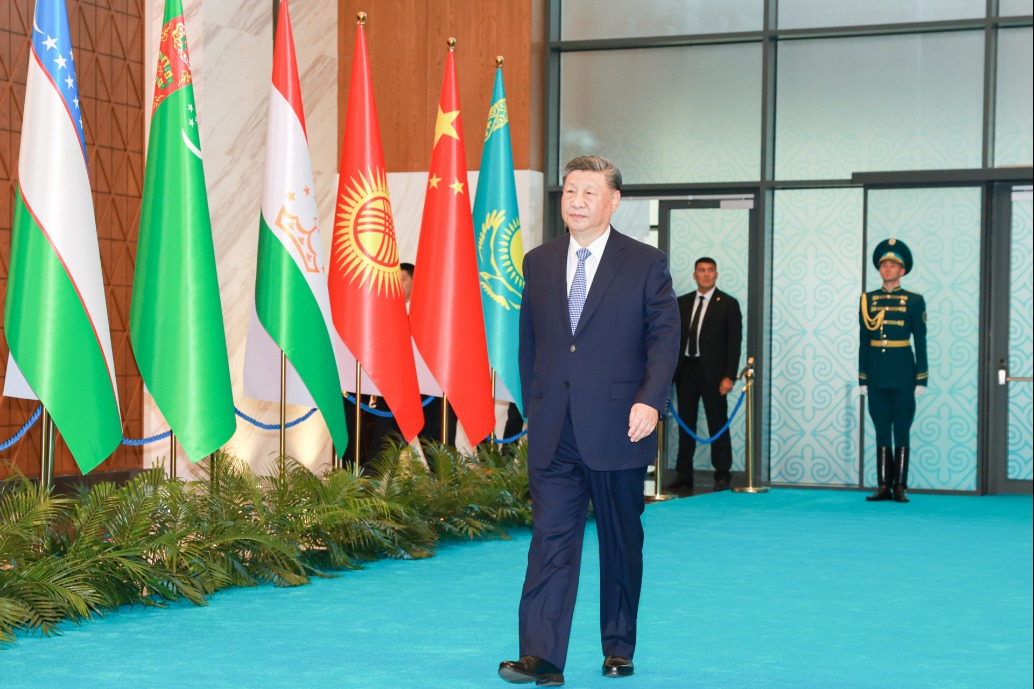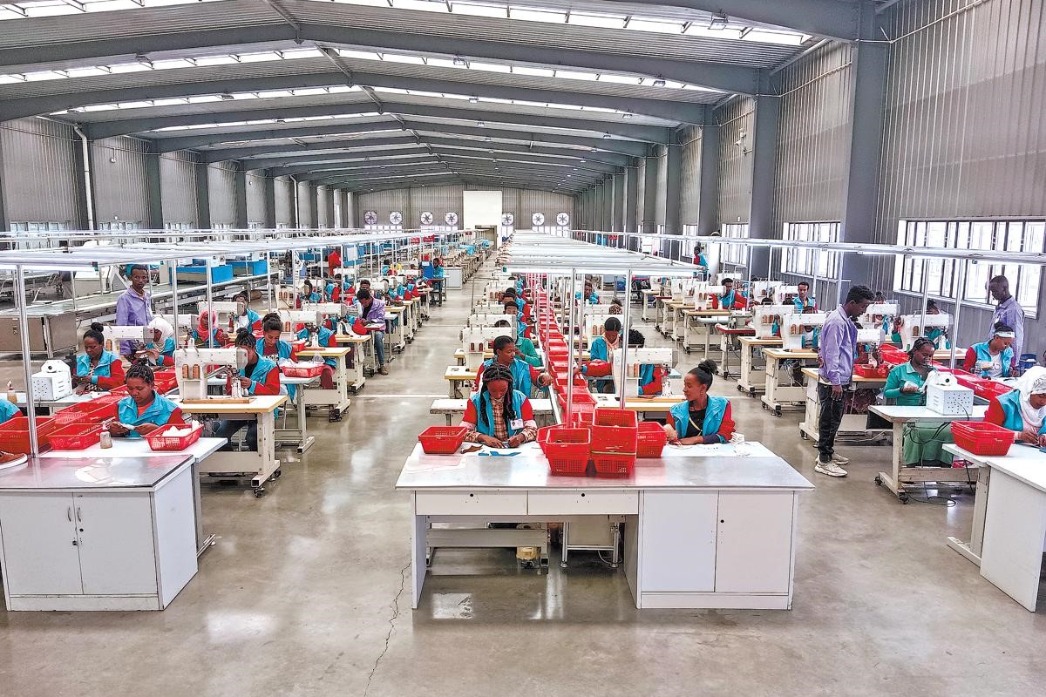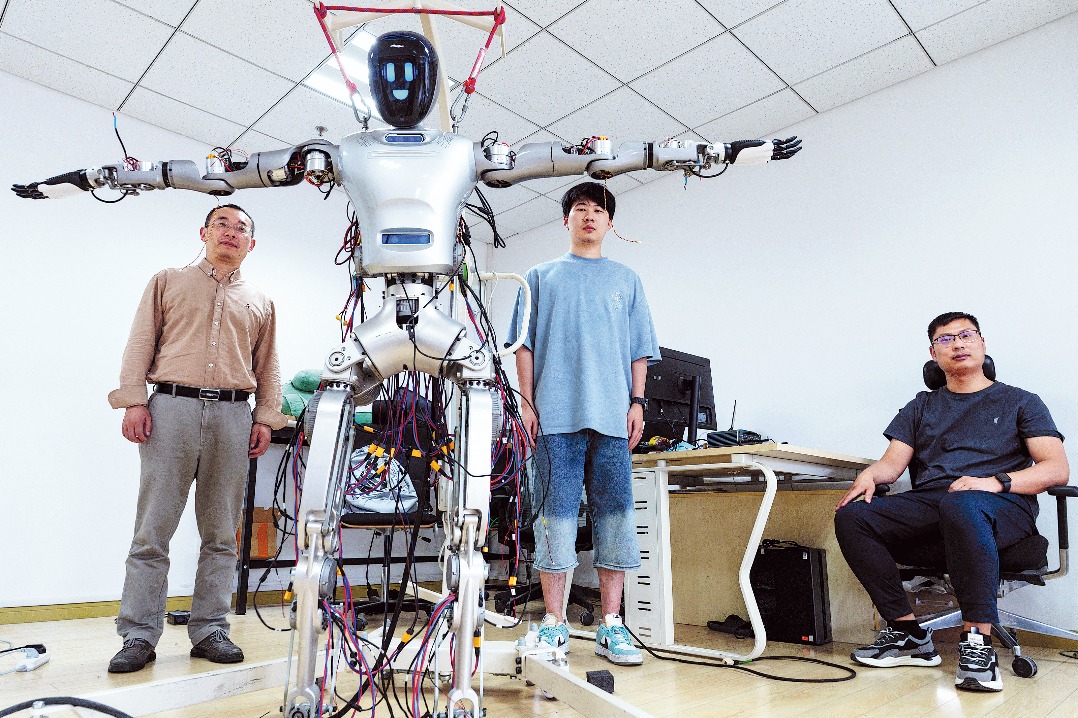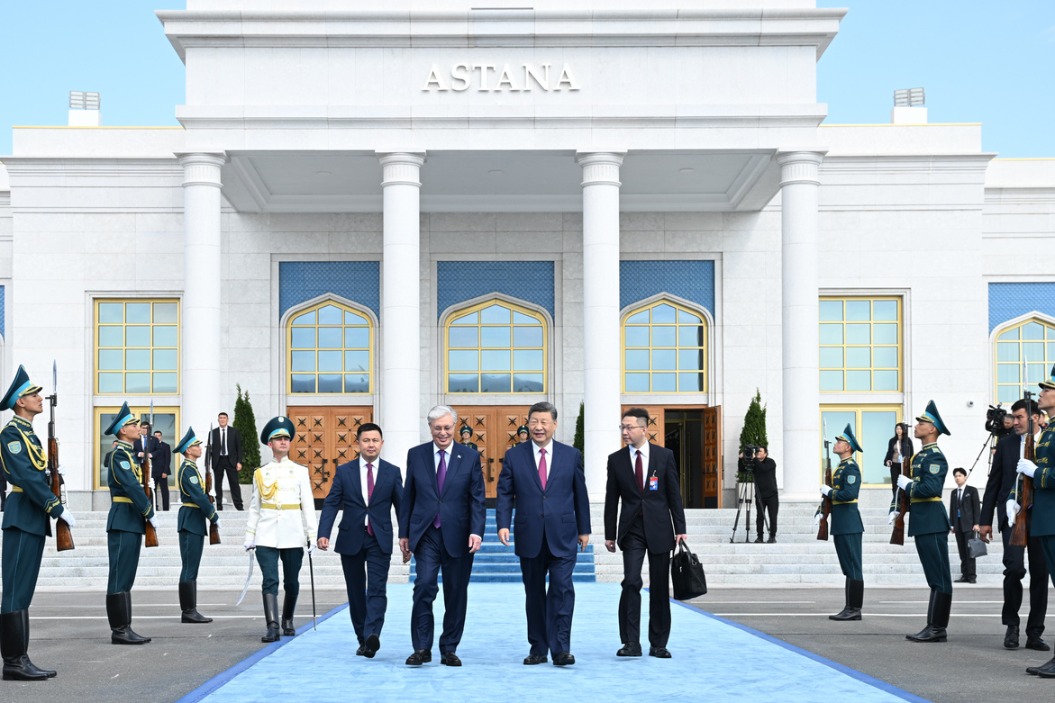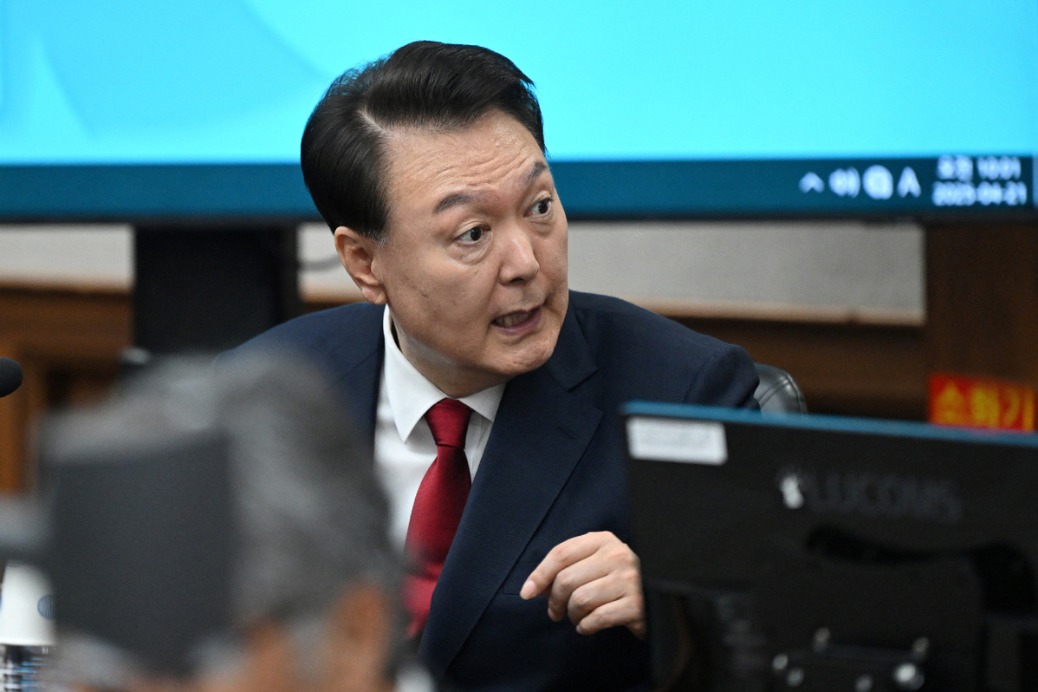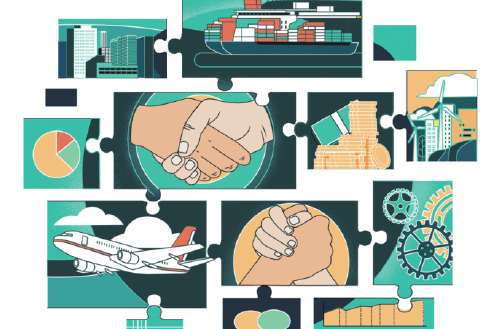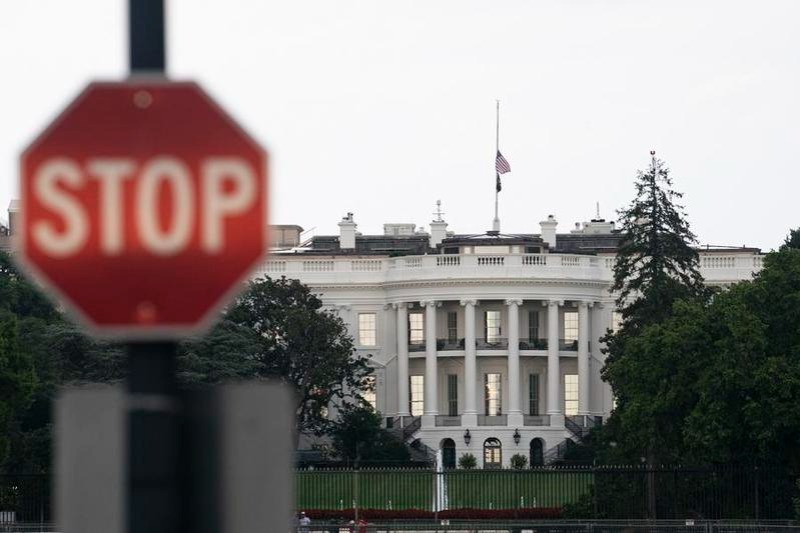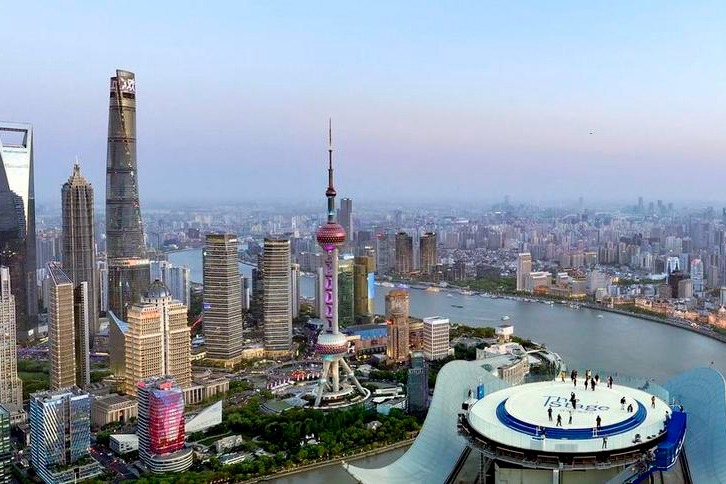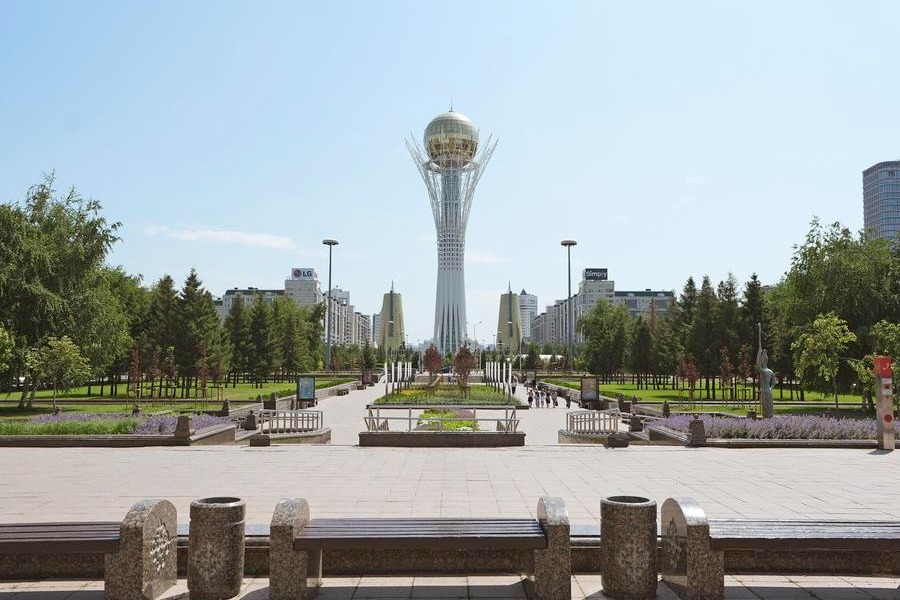Driving change
China's 'infrastructure plus' cooperation with Africa can help produce profound and positive changes on the continent


Driven by great-power competition, as well as the energy transition and supply chain security considerations, regional connectivity is a priority agenda for Africa's development and regional integration. China-Africa cooperation is an important testament to and driving force in this process.
China's contribution to the cross-regional cooperation in Africa is evident to all. Through cooperation on infrastructure, including financial support, trade and investment, and technology transfer, China has participated in cross-border development corridors and continental planning projects, such as the Mombasa-Nairobi Railway, the Addis Ababa-Djibouti Railway, the Benguela Railway, Angola's new international airport in Luanda, the Greenfield Terminal at Kenya's Jomo Kenyatta International Airport, the expansion of Victoria Falls International Airport, and the Lamu Port-South Sudan-Ethiopia Transport Corridor. Such infrastructures, including railways, highways and ports, reduce logistics costs and time, facilitate trade flows and help drive the flow of Chinese goods, capital, technology and services to Africa. They also boost Africa's China-bound exports and trade growth with China.
In the past, Africa's infrastructure projects were largely planned and financed by Western countries, with the United States and Europe having the rule-making powers. In recent years, China has not only been building roads and bridges in Africa, but has also been aligning its Belt and Road Initiative with the African Union's Agenda 2063. This has helped African countries optimize their systematic layouts in their development plans, industrial complementarity and financing models. China's support is also expanding from "hard connectivity" to "soft connectivity" that focuses on technology transfer and enhancement of industrial capacities, which is crucial for Africa to achieve genuine economic integration. For example, China is not only involved in the construction and refurbishment of railways in the Lobito Corridor project, but also helped establish a mineral processing industry chain locally. This new model of "infrastructure plus industrial cooperation" will become a key direction for future China-Africa partnership.
Nevertheless, China and Africa will still face new challenges for their deeper cooperation, mainly manifested in three aspects.
The first is the sustainability of financing models. Over the past decade or so, China has supported Africa's infrastructure through policy finance and large investments. However, as time goes by, the model that relies solely on government-to-government loans is hard to continue.
The second is the intensifying great power competition. The US and the European Union have successively launched new cooperation plans for Africa in recent years, such as the Partnership for Global Infrastructure and Investment and the Global Gateway initiative. These initiatives aim to counterbalance China's influence by developing corridors, the digital economy and new energy. If China and Africa continue to deepen cooperation in fields such as green energy, the digital economy and industry chain upgrading, they will not only be able to achieve win-win outcomes, but also assume higher roles in the global governance system.
In addition, the cooperation model between China and Africa is facing the pressure of transformation and upgrading. China is shifting from large-scale infrastructure construction to a greater focus on extending industry chains and promoting local development. It is now prioritizing small-yet-smart projects to support the inclusive development of Africa. A series of measures were proposed at the 2024 Summit of the Forum on China-Africa Cooperation in Beijing, including supporting the African Union Development Agency-New Partnership for Africa's Development to implement connectivity projects in the continent's five subregions, encouraging private enterprises to work in tandem with African financial institutions to increase investment in African infrastructure, expanding upstream and downstream industries and supporting infrastructure construction related to mineral smelting and processing, and exploring deep-processing projects for mineral products in Africa, helping Africa to transform its resource advantages into economic strengths. These policy objectives reflect the evolution of China's cooperation philosophy with Africa and put forward higher requirements for China's role in the continent's transformation and capacity building.
At the 2024 FOCAC Summit in Beijing, China proposed 10 partnership actions to deepen China-Africa cooperation, providing key concepts and pathways for China's participation in cross-regional cooperation in Africa in the new era. An important reality of current China-Africa cooperation is that the traditional relatively singular project contracting model, or "turnkey" model, can no longer meet contemporary needs.
How to transform China's resource advantages in infrastructure projects in Africa into long-term strengths and how to enhance the inclusive development effects of those China-built projects are significant issues in bilateral cooperation.
First, the cooperation model should shift from "engineering contracting" to "full-chain cooperation".In the past, Chinese companies primarily undertook projects in Africa through the engineering-procurement-construction model, with limited involvement in operation management and follow-up maintenance. In the future, Chinese enterprises need to participate more in the long-term operation of the cooperation projects. For example, they could explore joint ventures to operate infrastructure such as railways and ports, ensuring these projects' sustainable and inclusive development.
Second, project financing should be more diversified rather than mainly government-led. The evolution of concepts and paradigms in Africa's cross-regional cooperation means that China-Africa cooperation must also make corresponding adjustments. The cross-regional cooperation within Africa is characterized by its cross-border, cross-cultural and cross-sectoral nature, which increasingly drives African countries to rely on diversified and open international partnership networks, as well as inclusive and coordinated national development approaches. In the present and future, China needs to explore more projects that involve public-private partnership, multilateral institutions and joint financing, with an emphasis on market-oriented financing. This also includes attracting investments from Chinese private enterprises, African local capital, and international multilateral institutions to reduce project risks and enhance the sustainability of financing.
Third, China should steer its focus from infrastructure to the industrial ecosystem. As a significant participant in Africa's infrastructure development, China should leverage its early advantages in infrastructure construction on the continent and actively explore the "infrastructure plus" model. By doing so, it can catalyze economic growth and promote the integrated development of multiple industries. For example, it can drive the coordinated growth of "infrastructure plus industry plus trade" by establishing industrial parks near transportation hubs to attract more manufacturing investments, thereby helping African countries achieve industrial upgrading. Such cooperation has already yielded positive results. For instance, the Chinese-built Eastern Industrial Park in Ethiopia has not only provided local employment but also attracted textile and footwear companies, forming a complete industry chain. Local residents have transitioned from farmers to industry employees, with their income significantly improved.
Last, Africa's cross-regional development involves interactions of economic, social and political factors. China's investment in Africa's infrastructure brings about profound and positive changes to the continent's geographical and economic landscape. Moving forward, China needs to adjust its cooperation approach to better leverage its advantages in the development of a more dynamic economic and industrial network by transitioning to a cooperation model that places greater emphasis on rule alignment, industrial upgrading and localization.

The author is deputy director at the Center for West Asian and African Studies at the Shanghai Institutes for International Studies. The author contributed this article to China Watch, a think tank powered by China Daily.
Contact the editor at editor@chinawatch.cn.

















